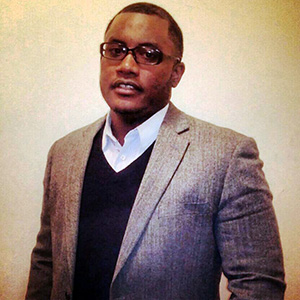 This June 8, more than 1,000 educators from 36 schools will attend the seventh annual NYC Transfer School Conference in the Upper West Side of Manhattan. An initiative of the NYC Department of Education Office of Postsecondary Readiness in partnership with Eskolta, the conference is an opportunity for educators from transfer schools across the City to come together for a day of learning, networking, and celebrating the meaningful work they do.
This June 8, more than 1,000 educators from 36 schools will attend the seventh annual NYC Transfer School Conference in the Upper West Side of Manhattan. An initiative of the NYC Department of Education Office of Postsecondary Readiness in partnership with Eskolta, the conference is an opportunity for educators from transfer schools across the City to come together for a day of learning, networking, and celebrating the meaningful work they do.
Each year Eskolta brings together a team of transfer school educators, known as conference advisors, to support the planning process during the six to eight months prior to the event. Advisors vet workshop applications, give feedback to presenters as they develop their sessions, and provide valuable suggestions on different aspects of the conference. We spoke with second-year advisor Kevin Daniels, a Learning to Work program manager for New York Mission Society at Harlem Renaissance High School, about what the Transfer School Conference means to him.
What do you see as the biggest thing you take away from the conference?
KD: Sharing ideas with other people in common roles. Connecting with our own staff there is helpful, too, because we can all bring back our ideas from different workshops and figure out which ones work best for our school.
Is there a session from a past conference that was especially memorable for you?
KD: I think the Peer Exchanges sessions [in which educators in the same role share ideas] are the most memorable. I attended one at my first conference, and I was in a room with other college counselors. We talked about challenges, successes, and best practices. Sometimes you think you are the only one having these isolated issues and challenges with the students, but others are dealing with similar concerns. Often we have to catch ourselves using similar practices repeatedly, expecting different results, but with a diverse group of minds coming together, you get exposure to different ideas and something fresh.
Can you recall a particular idea you heard in that session that influenced your practice?
KD: I still use the practice today. A counselor from another school told us about coordinating a FAFSA [college financial aid] workshop for parents to further enhance their knowledge of the process, which could potentially help for future references. We tried it—we had a brief session in which we went over the financial aid process and why it’s important to complete on time. The parents really were excited when they saw the opportunities and benefits for their children. We wanted to follow up with them, so we collected their emails, which creates ongoing communication. This practice allows you to create dialogue between you and the parents, which is always beneficial.
Why did you become a conference advisor?
KD: I felt becoming an advisor would give me greater insight on the conference. The planning aspect of things would allow me to give personal feedback to fill certain gaps, as we are always trying to improve the conference. By working with presenters directly in the planning process, you get a head start because the conference is in June, but you start working with presenters in February. We still have five months of bouncing ideas off each other.
Are you thinking about any new ideas from your conversations with presenters this year?
KD: Amanda [Saintvil, director, Good Shepherd Services at Research and Service High School] has a great workshop coming up on various activities to get students to open up and share more. She conducts the activities with her staff, and so they can work through it first and have hands-on experience before conducting activities with students. The activities help build relationships and gather useful information to help students in different settings. Sometimes students are close-minded and you have to gain their trust before they open up, but that can take some time—it can be a month, two months, or somewhere down the road—but with these activities, it gives you a better sense of building a strong relationship, which can expedite the process.
Lastly, what are you looking forward to at this year’s conference?
KD: Definitely the workshops; they are always great. I don’t think I’ve ever attended a workshop where I said, “That wasn’t helpful.” I’m looking forward to the atmosphere and the networking aspect. That’s always valuable, but I also enjoy learning new practices and bringing something innovative back to the school, which is always key for me. The more we communicate and share best practices, the better the outcomes.
